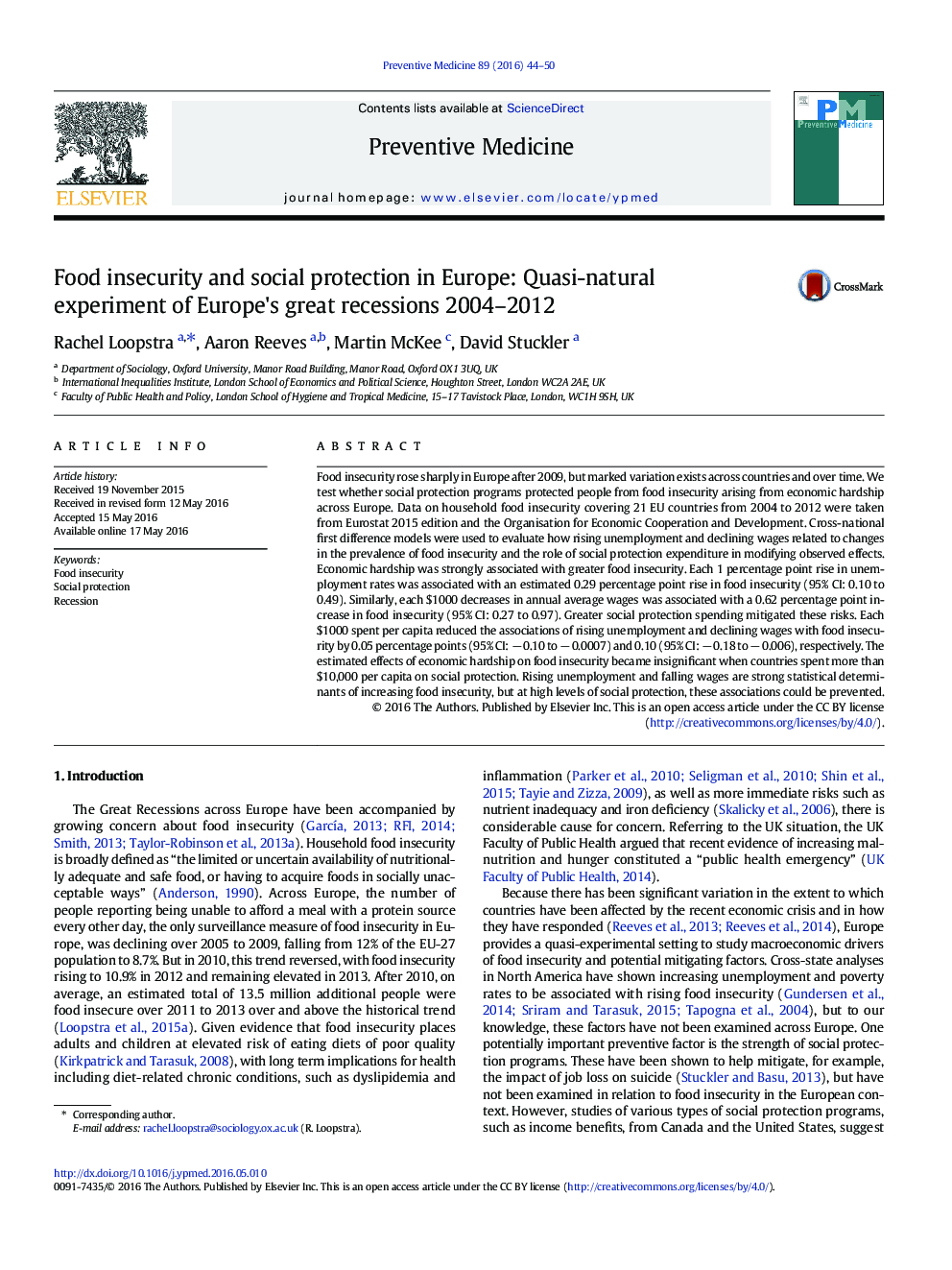| Article ID | Journal | Published Year | Pages | File Type |
|---|---|---|---|---|
| 6046172 | Preventive Medicine | 2016 | 7 Pages |
Abstract
Food insecurity rose sharply in Europe after 2009, but marked variation exists across countries and over time. We test whether social protection programs protected people from food insecurity arising from economic hardship across Europe. Data on household food insecurity covering 21 EU countries from 2004 to 2012 were taken from Eurostat 2015 edition and the Organisation for Economic Cooperation and Development. Cross-national first difference models were used to evaluate how rising unemployment and declining wages related to changes in the prevalence of food insecurity and the role of social protection expenditure in modifying observed effects. Economic hardship was strongly associated with greater food insecurity. Each 1 percentage point rise in unemployment rates was associated with an estimated 0.29 percentage point rise in food insecurity (95% CI: 0.10 to 0.49). Similarly, each $1000 decreases in annual average wages was associated with a 0.62 percentage point increase in food insecurity (95% CI: 0.27 to 0.97). Greater social protection spending mitigated these risks. Each $1000 spent per capita reduced the associations of rising unemployment and declining wages with food insecurity by 0.05 percentage points (95% CI: â 0.10 to â 0.0007) and 0.10 (95% CI: â 0.18 to â 0.006), respectively. The estimated effects of economic hardship on food insecurity became insignificant when countries spent more than $10,000 per capita on social protection. Rising unemployment and falling wages are strong statistical determinants of increasing food insecurity, but at high levels of social protection, these associations could be prevented.
Related Topics
Health Sciences
Medicine and Dentistry
Complementary and Alternative Medicine
Authors
Rachel Loopstra, Aaron Reeves, Martin McKee, David Stuckler,
